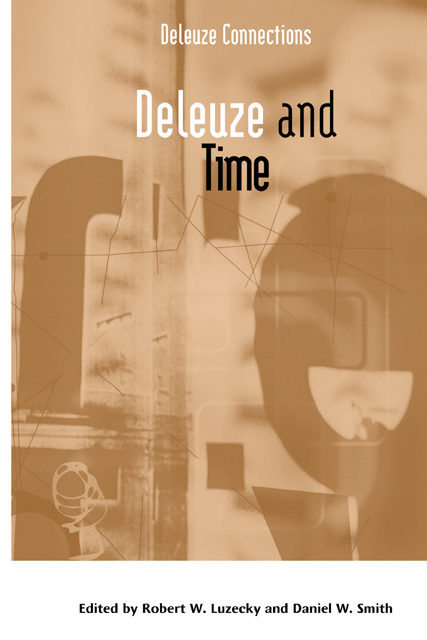4 - Gilles Deleuze’s Interpretation of the Eternal Return: From Nietzsche and Philosophy to Difference and Repetition
Published online by Cambridge University Press: 13 April 2023
Summary
Deleuze famously describes his generation as ‘more or less bludgeoned to death with the history of philosophy’.1 His means of escaping this stifling atmosphere is infamous: ‘The main way I coped with it’, Deleuze writes, ‘was to see the history of philosophy as a sort of buggery … I saw myself as taking an author from behind and giving him a child that would be his own offspring, yet monstrous’ (1995: 5–6). This provocative image makes it unsurprising if scholars working within the philosophical tradition tend to neglect Deleuze’s readings of other philosophers. Respectable historians of philosophy seldom fraternise with monsters. But even if one adopts this dismissive view of Deleuze’s historical commentaries, an exception would need to be made for his Nietzsche and Philosophy. For, in the same ‘Letter to a Harsh Critic’, Deleuze goes on to state: ‘It was Nietzsche … who extricated me from all this. Because you can’t just deal with him in the same sort of way. He gets up to all sorts of things behind your back. He gives you a perverse taste for … saying simple things in your own way.’ Here, Deleuze indicates that his study of Nietzsche is not an instance of interpretive ‘buggery’. In fact, reading Nietzsche relieves Deleuze’s need for such an approach by enabling him to write in his ‘own name’ (6). Yet, there is a cost for attributing this catalytic function to Nietzsche. If we take Deleuze at his word when he describes Nietzsche and Philosophy as an attempt to pay his ‘debts’ to the history of philosophy (Deleuze and Parnet 2007: 16), then this early work seems vulnerable to the stifling interpretative demands that Deleuze otherwise seeks to abjure.
Deleuze’s encounter with Nietzsche occurs at the boundary between the burdens of traditional interpretation and unabashed concept creation. This is perhaps best illustrated by Deleuze’s interpretation of the eternal return. Nietzsche reveals the idea in a demonic declaration: ‘This life as you live it now and have lived it you will have to live once again and innumerable times again; and there will be nothing new in it’ (GS 341).
- Type
- Chapter
- Information
- Deleuze and Time , pp. 75 - 97Publisher: Edinburgh University PressFirst published in: 2023



